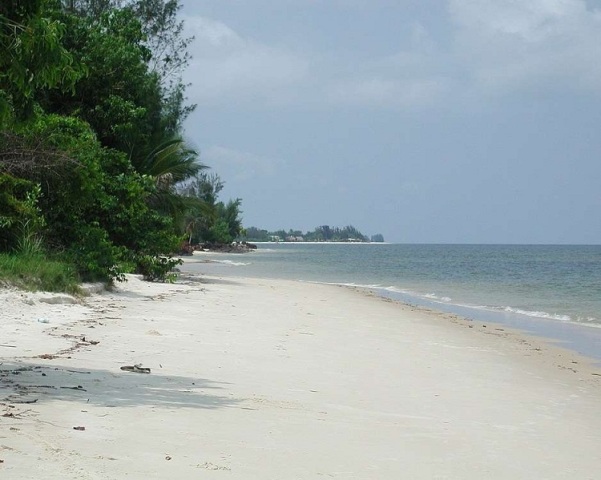Do you want to know more about Gabon? This article will outline some of the more remarkable facts that surround the country of Gabon in west central Africa.
Facts About Gabon
Gabon is a country located in central West Africa. It is a democratic nation that got its independence from France on August 17, 1960. Gabon shares its borders with Equatorial Guinea in the northwest, Cameroon in the north and the republic of Congo whose borders stretches from the east to the south of Gabon. The history of the country shows that its earliest inhabitants were the pygmy’s who were later replaced or absorbed into the people belonging to the Bantu tribes. The political setup of Gabon is of a democratic republic and the country itself is divided into nine provinces. The population of Gabon is estimated to stand at 1,514,993 (As of June 12, 2009) spread over an area of 267,667 sq. km. The country boasts of a hilly terrain and is full of lush green rainforests. Even though Gabon has faced some turbulent times, since its independence, its economy is on the rise and it is fast becoming the best place to go to of you are interested in eco-tourism.

Image: By Nolween (Own work) [CC-BY-SA-3.0 (http://creativecommons.org/licenses/by-sa/3.0) or GFDL (http://www.gnu.org/copyleft/fdl.html)], via Wikimedia Commons
Fast Facts
Continent: Africa
Capital: Libreville
Area: 267,667 km2
Population: 1,475,000 (2009)
Currency: Communaute Financiere Africaine Francs
Official Language: Fang, Myene
Independence Day: August 17, 1960
Type of Government: Presidential Republic
Fun & Interesting Facts About Gabon
-
The region was initially inhabited by the Pygmy peoples later the people of the Bantu tribes immigrated to the place.
-
In 18th century, Orungu, the Myeni kingdom was established in Gabon. In 1875 the French explorer Pierre Savorgnan de Brazza arrived here and established the town of Franceville. When in 1885, the area of Gabon came under the control of the French it was inhabited by Bantu groups.
-
Gabon is a presidential republic and the first president of Gabon was Léon M'ba, who was elected in 1961, along with Omar Bongo Ondimba as his vice president, who later became the president.
-
President El Hadj Omar Bongo Ondimba is considered the longest serving head of state ever. He ruled over Gabon from 1967 to 2009 (The year of his death).
-
The climate of Gabon is mostly hot and humid owing to the fact that it lies right on the equator.
-
Libreville, which means free town, is the capital of Gabon and was founded in 1849 by freed slaves. It however was not declared the capital of Gabon till 1993.
-
The official currency of Gabon is Communaute Financiere Africaine Francs. $1 = 541.9 CFAF (as of June 29, 2010).
-
Gabon has rich reserves of manganese, iron, petroleum and timber.
-
Almost 80-85% of Gabon is covered by rainforests, 11% of which has been dedicated for national parks making these parks some of the largest nature parks in the world.
-
The rainforests of Gabon are home to 777 species of birds.
-
Ogooué is the largest lake in Gabon and stretches over a distance of 1200 km.
-
Gabon was annexed into the territories of French Equatorial Africa. this federation lasted for almost five decades.
-
The entire country of Gabon is just slightly smaller than the state of Colorado in the United States.
-
The highest point in Gabon is Mont Iboundji that stands at a total height of 1,575 m or 5166 ft.
-
People over the age of 65 years form only 3.9% of the population of Gabon.
-
About 75% of the Gabonese population is Christians.
-
The minimum age to vote in Gabon is 21 years of age.
-
The official language of Gabon is French and some of the other languages spoken are Fang, Myene, Bateke, Bapounou/Eschira and Bandjabi.
-
The defense forces of Gabon have strength of about 8000 personnel.
-
Gabon is home to 80% of Africa’s Gorilla population.
-
The best place to go to experience Gabon’s eco-tourism is the Ivindo National Park in Eastern Gabon.
-
Gabon is home to hundreds of dolomite and limestone caves many of which are yet to be explored.
-
The economy of Gabon is highly dependent on its oil reserves. The revenues earned from oil accounts for around 46% of the government's budget, 43% of gross domestic product (GDP), and 81% of the total exports.
See also
More from iloveindia.com
- Home Remedies | Ayurveda | Vastu | Yoga | Feng Shui | Tattoos | Fitness | Garden | Nutrition | Parenting | Bikes | Cars | Baby Care | Indian Weddings | Festivals | Party ideas | Horoscope 2015 | Pets | Finance | Figures of Speech | Hotels in India : Delhi | Hyderabad | Chennai | Mumbai | Kolkata | Bangalore | Ahmedabad | Jaipur
- Contact Us Careers Disclaimer Privacy Policy Advertise With Us Lifestyle Sitemap Copyright iloveindia.com. All Rights Reserved.







